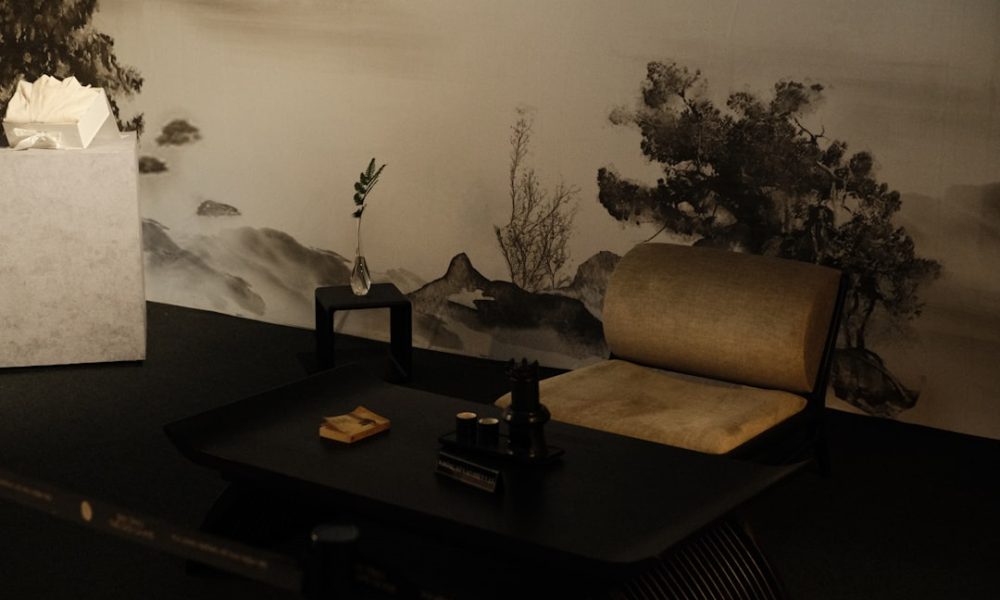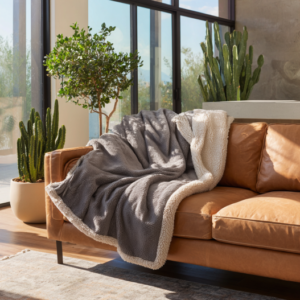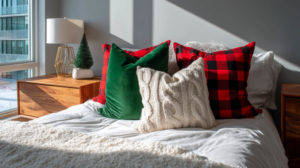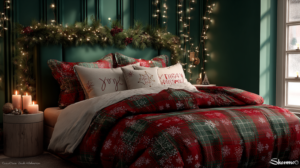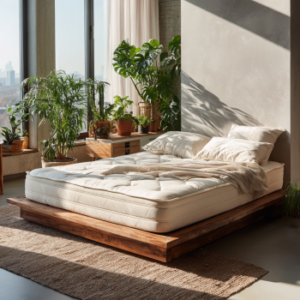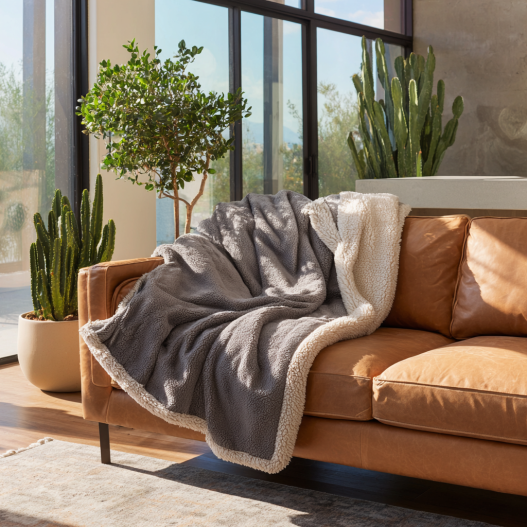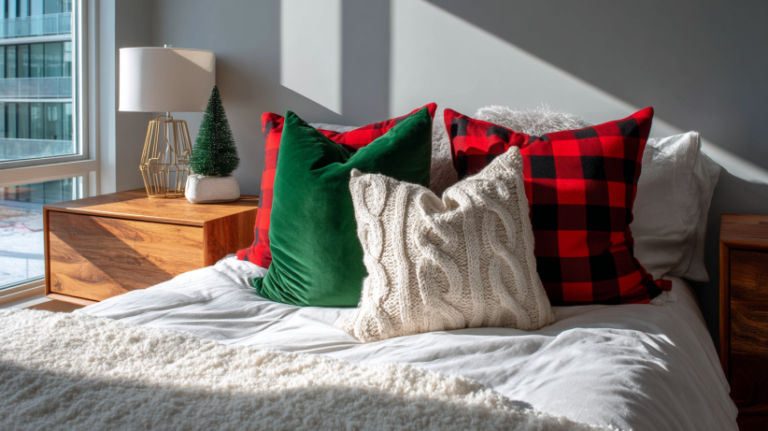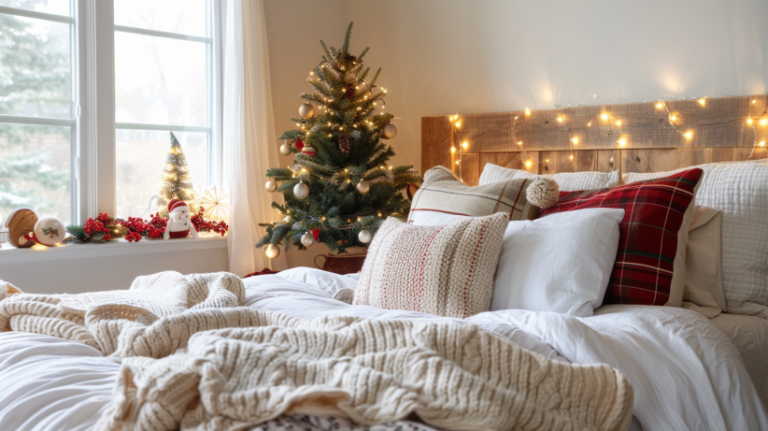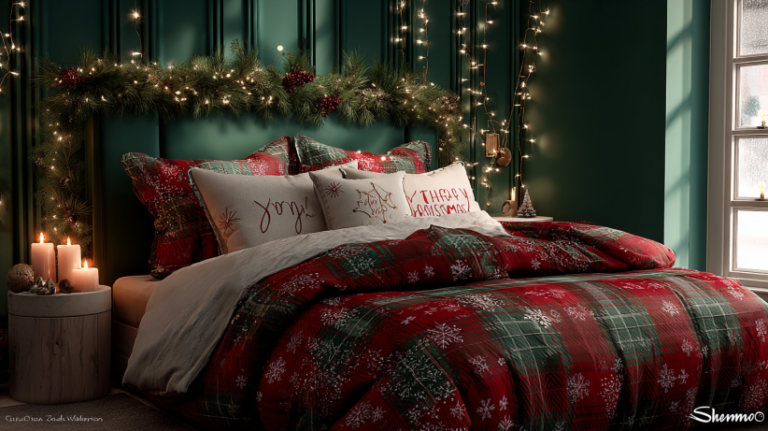Cozy Bedding Materials: Best Fabrics for Every Season & Sleep Style
Looking for the best cozy bedding materials to transform your sleep? From breathable cotton to luxurious silk, the right fabrics make all the difference. This guide highlights sustainable, organic options so you can build an eco-conscious sanctuary with soft, breathable, and durable layers.
Key Takeaways: cozy bedding materials
- Cotton and bamboo are breathable, soft, and dependable year-round.
- Flannel and fleece deliver exceptional warmth during colder months.
- Silk regulates temperature and is gentle on skin and hair.
- Organic, hypoallergenic picks like bamboo and organic cotton support sensitive sleepers.
- Layering different fabrics creates adaptable comfort for every season.
Importance of Choosing Cozy Bedding Materials
The foundation of restorative sleep lies in the cozy bedding materials you choose. Each fabric has distinct strengths—from cooling breathability to plush warmth—so matching materials to your sleep style prevents night sweats, chills, and discomfort.
Hot sleepers usually favor crisp cotton or silky bamboo for airflow. Cold sleepers often prefer flannel or fleece for gentle insulation without bulk. Knowing how each fabric behaves helps you customize comfort and wake up refreshed.
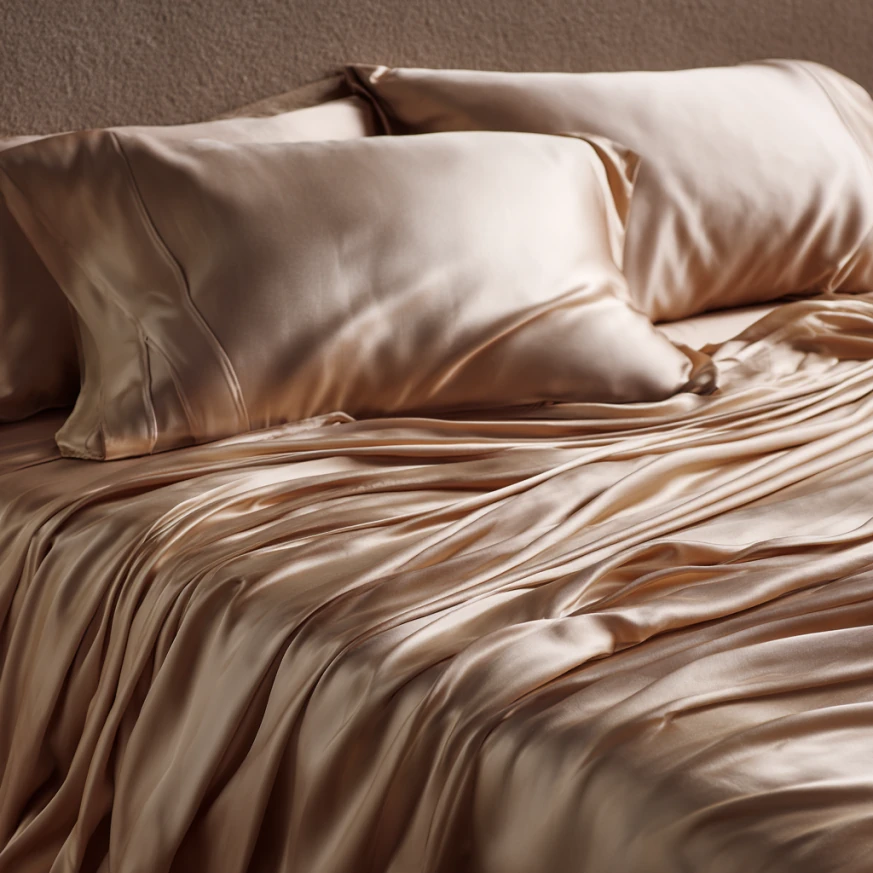
Popular Cozy Bedding Materials: Cotton, Flannel, and Fleece
Cotton
Answer first: Cotton is the balanced default—soft, breathable, and durable—making it a top pick among cozy bedding materials.
Classic percale offers a cool, crisp hand feel, while sateen drapes smoothly with a subtle sheen. Long-staple varieties (Egyptian, Pima) resist pilling and maintain strength through frequent washing. For eco-conscious sheets, look for organically grown cotton and third-party certifications to limit chemicals and retain that clean, airy feel.

Flannel
Answer first: Flannel traps heat while staying breathable, delivering that “toasty without overheating” sensation in winter.
Made by brushing cotton to raise soft fibers, flannel’s fuzzy surface holds warmth close to the body. Choose midweight options to avoid bulk and seek tightly woven fabrics that resist linting. If sustainability matters, prioritize organic flannel and mindful care—wash on gentle and avoid high heat to preserve loft.
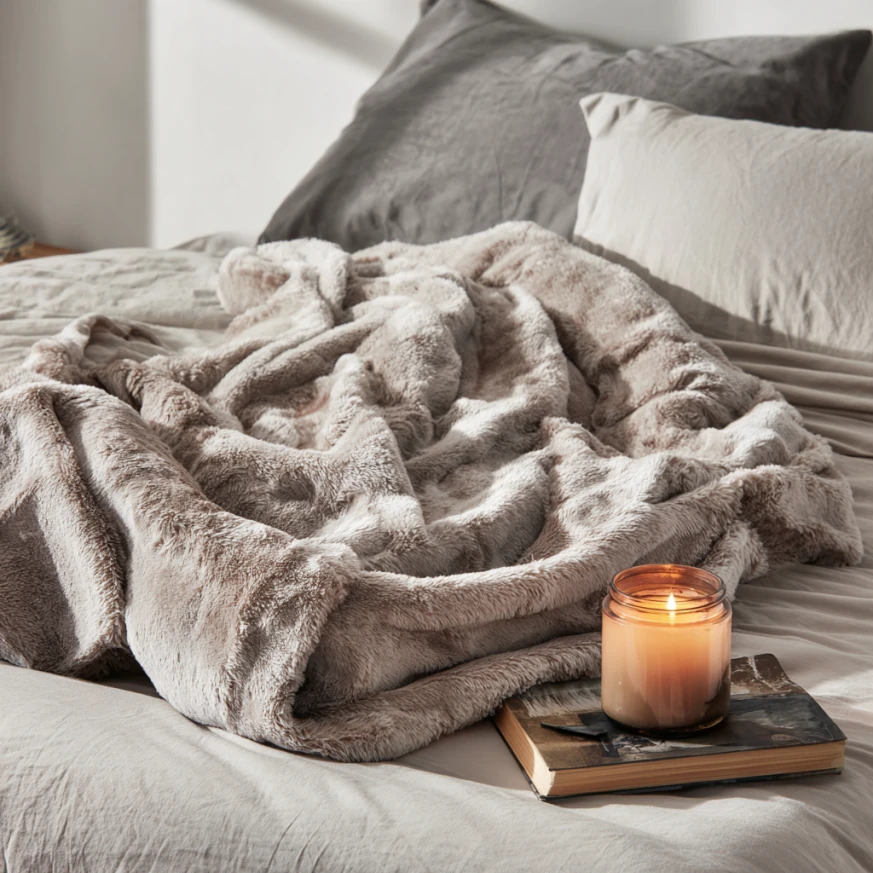
Fleece
Answer first: Fleece provides maximum softness and quick warmth, making it great for throws and top-layer blankets.
Modern fleece blankets feel plush, insulate well, and dry quickly—perfect for layering over lighter sheets when temperatures drop. For styling and extra snugness, add a fleece throw as a top layer at the foot of the bed.
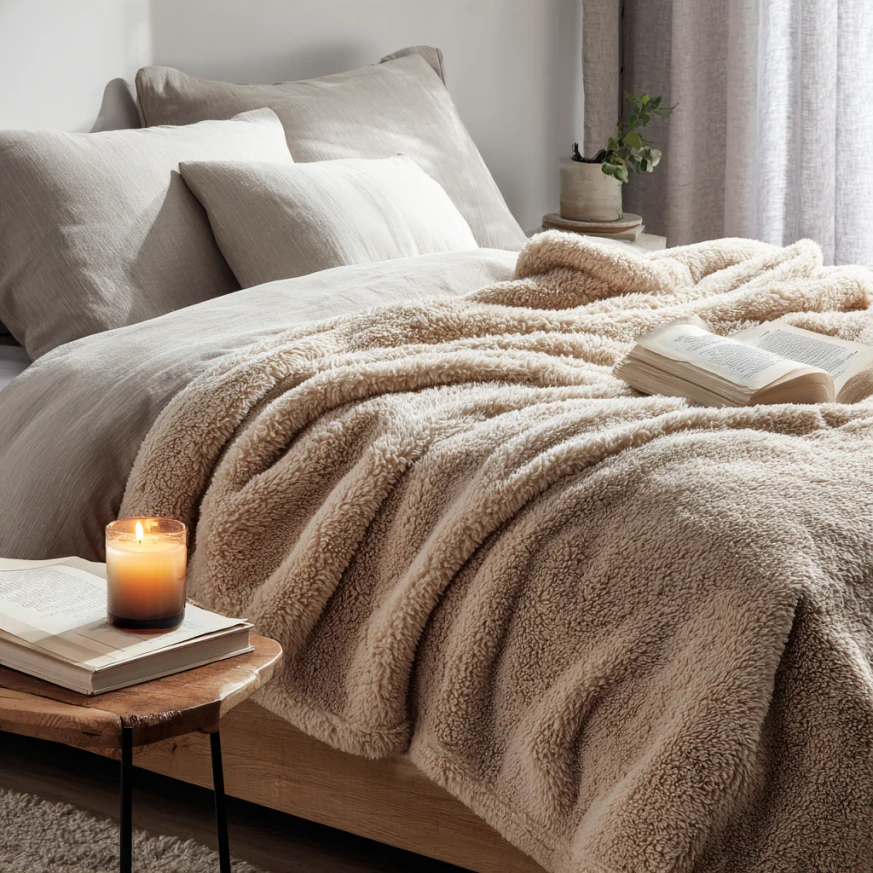
Exploring Luxurious Options: Bamboo and Silk
Bamboo
Answer first: Bamboo excels for hot sleepers—silky-soft, breathable, and moisture-wicking with a cool-to-the-touch feel.
Many bamboo fabrics drape beautifully and manage humidity to keep you comfortable through the night. They are naturally hypoallergenic and popular among fans of sustainable bedding. For a deeper overview of material pros and cons, explore the Sleep Foundation’s bedding materials guide.
Silk
Answer first: Silk is temperature-regulating and friction-reducing, helping protect hair and skin while keeping you comfy year-round.
The smooth weave minimizes tugging on hair and reduces facial creasing. It feels light in summer yet cozy in winter. If you want a luxury upgrade with practical perks, a silk pillowcase or duvet cover is a smart way to sample this premium material.
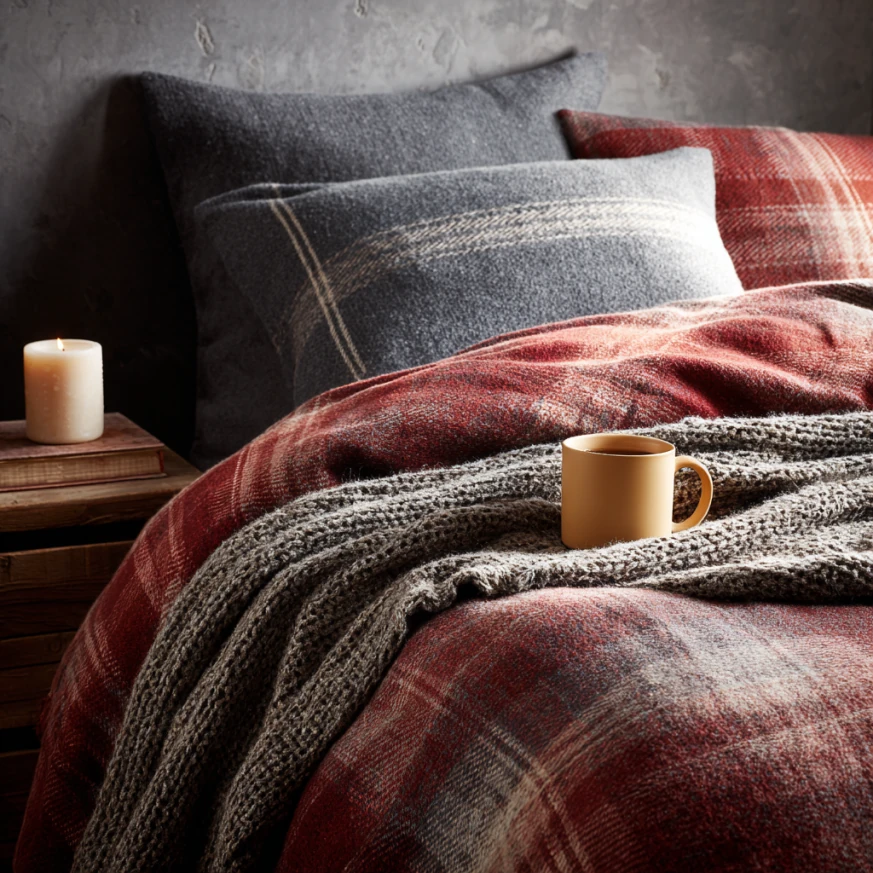
Seasonal Adaptability with Cozy Bedding Materials
The best cozy bedding materials adapt to changing weather. In spring and summer, lightweight cotton or bamboo sheets keep airflow steady. In fall and winter, layer flannel or fleece for extra warmth without trapping excess heat.
Try this simple formula: crisp cotton or bamboo sheets + a midweight duvet + a fleece or flannel throw. This flexible stack lets you dial warmth up or down by adding or removing the top layer.
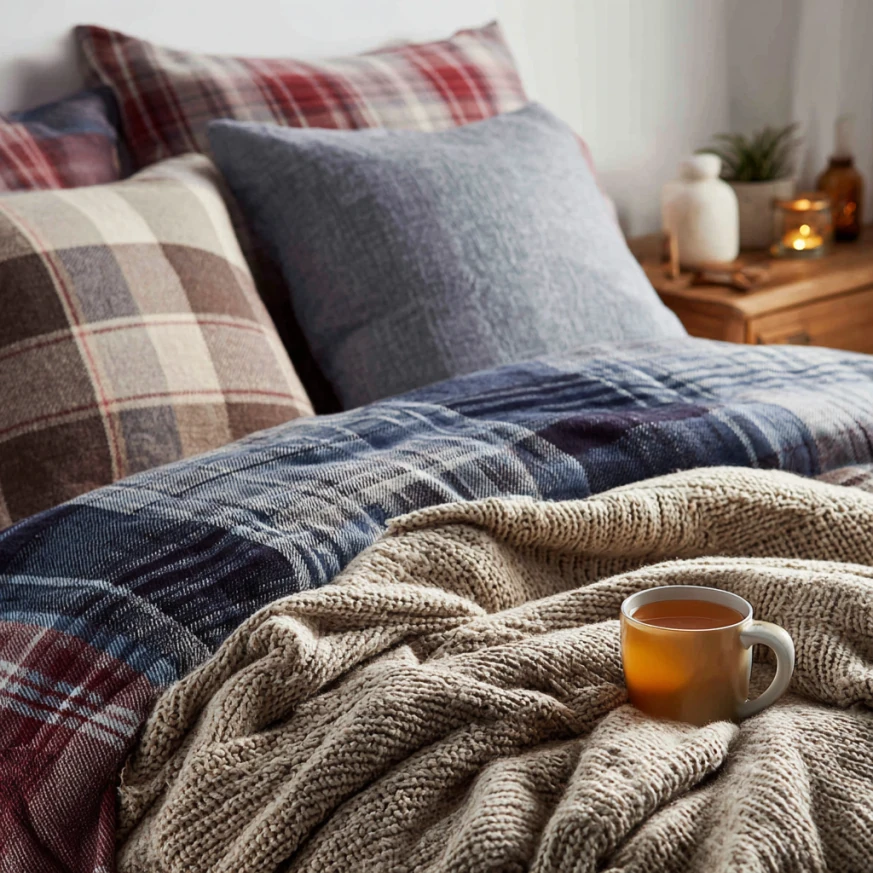
Benefits of Hypoallergenic Cozy Bedding Materials
Sensitive sleepers thrive with hypoallergenic cozy bedding materials like organic cotton and bamboo. These choices reduce exposure to harsh finishes and are less likely to irritate skin.
To verify materials, look for third-party labels such as GOTS (organic fiber certification) and OEKO-TEX (testing for harmful substances). Certifications support eco-conscious sheets that are safer for you and the planet.
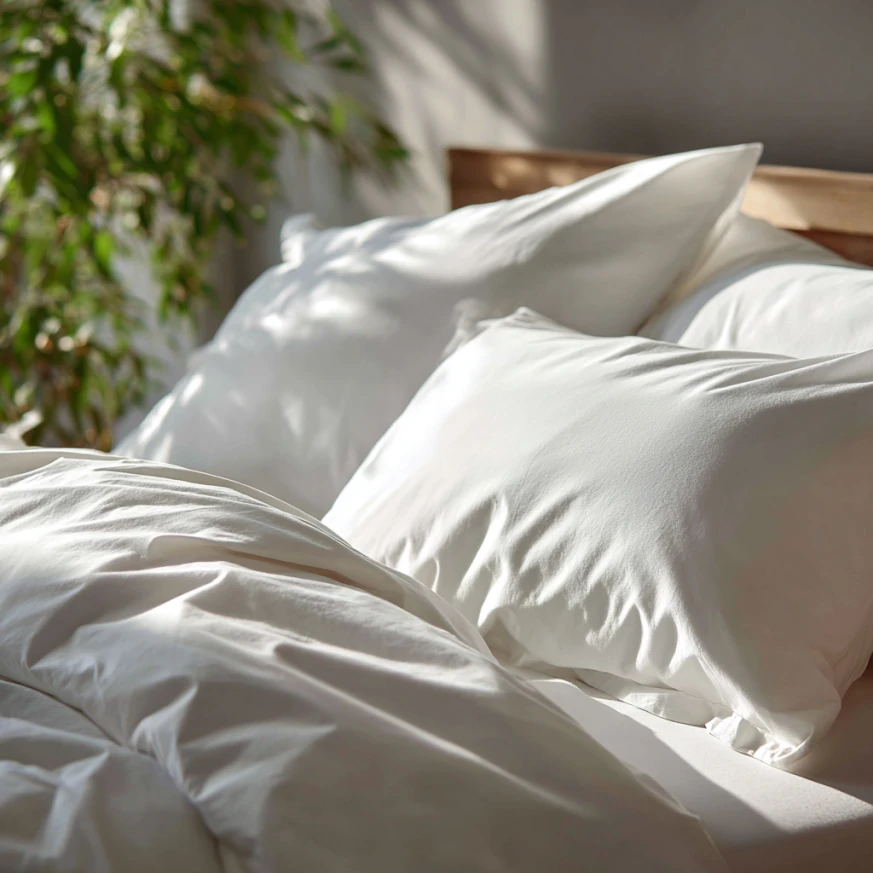
Practical Tips for Choosing the Best Cozy Bedding Materials
- Match materials to your sleep habits: hot sleepers prefer bamboo or percale cotton; cold sleepers love flannel.
- Feel the fabric when possible. Touch reveals breathability, drape, and softness better than spec sheets.
- Check trusted labels: learn how GOTS and OEKO-TEX help ensure safer, sustainable bedding.
- Layer strategically for seasonal flexibility and design balance.
- Care matters: gentle washing preserves loft, reduces pilling, and extends lifespan.
- Know your top layer: choose a duvet or comforter that works with your fabric choices and local climate.
- Match bedding with mattress firmness for balanced comfort.
FAQ
- What are the best cozy bedding materials for winter?
- Flannel and fleece are ideal for winter. They retain heat, feel soft on skin, and layer easily with cotton or bamboo sheets.
- Are bamboo sheets good for hot sleepers?
- Yes. Bamboo is breathable and moisture-wicking, helping manage temperature and humidity for cooler nights.
- Which cozy bedding materials are hypoallergenic?
- Organic cotton and bamboo are naturally hypoallergenic, especially when certified by GOTS or OEKO-TEX.
Final Thoughts: Choosing the Right Cozy Bedding Materials
Selecting the right cozy bedding materials transforms both comfort and sleep quality. Start with breathable cotton or bamboo, add warmth with flannel or fleece as needed, and consider a touch of silk for luxury and skin benefits. For more guidance, explore Cozy Bed Quarters for expert tips, buying advice, and room-by-room comfort ideas.

